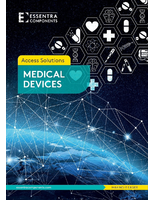ANSI-HSSP Workshop weighs transit security standardization.
Press Release Summary:
ANSI Homeland Security Standards Panel (HSSP) workshop on transit security took place on Jan 27-28, 2009, in Arlington, Virginia. Deputy Chief Owen Monaghan of the NYC Police Department Transit Bureau stressed need for interoperable standards and conformity assessment-based solutions, while participants noted that strategies, metrics, and testing and evaluation procedures must also be established. Volunteers agreed to conduct follow-up meetings and conference calls during March 2009.
Original Press Release:
ANSI-HSSP Workshop Examines Urgent Needs in Transit Security Standardization
New York, February 9, 2009
With 568 individual trains operating during the height of rush hour and 468 stations to monitor, New York City transit security officials face the critical task of keeping over 1.5 billion passengers safe each year.
Deputy Chief Owen Monaghan of the New York City Police Department Transit Bureau shared these statistics during the American National Standards Institute (ANSI) Homeland Security Standards Panel (HSSP) workshop on transit security, which took place on January 27-28, 2009, in Arlington, Virginia.
Monaghan's examples underscore the urgent need for interoperable standards and conformity assessment-based solutions that meet the complex requirements of the transit security community - not just for New York City, but for urban, suburban, and regional commuter transportation operations around the world.
"Transit is a top target, if not the target, ripe for terrorist attack," said John Pasczkowski, director of emergency management and security for the Port Authority of New York and New Jersey, during his opening remarks. "Transit security can't rely on one or two primary approaches, like CCTV and foot patrol, but instead must be based on a diverse set of complementary strategies that build out a defense-in-depth strategy. Each layer [must] coordinate with, and compensate for, the inherent weakness of others."
Working to identify these layers was a diverse group of nearly 90 participants from standards developing organizations (SDOs), federal agencies, and the transit community. Surveillance and video analytics, access control, and detection of explosives rose to the top of the list as attendees examined the relevant standards in each area, considered what standards might still be needed, and identified what performance requirements should be proposed for such standards.
Participants also stressed that developing a standard is not enough; implementation strategies, metrics, and testing and evaluation procedures must also be provided to aid the transit security community. Many expressed that standards development requires an integrated approach, and that there exists a need for a comprehensive "one-stop shop" platform to collect all information relevant to transit security standardization and metrology work.
Going forward, volunteers from each workshop break out session have agreed to conduct follow-up meetings and conference calls during the month of March 2009. Their goal is to work quickly to identify the relevant standards and gaps that need to be filled in order to achieve what participants termed "a sustainable level of security."
Ron Masciana, deputy chief of the New York Metropolitan Transit Authority Police, and Colin Alter, subject matter expert, served as workshop co-leaders, guiding the two-day discussion.
According to Mr. Masciana, building awareness of the existing standards infrastructure is critical so that local governments and transit authorities don't waste time and money duplicating existing efforts.
"There are many resources and solutions at our disposal, but there is not broad awareness of what already exists," he explained. "The high level of attendance at this workshop demonstrates the transit security community's commitment to developing integrated, interoperable solutions that will work together across agencies and across borders.
"It is my strong belief that the future success of transportation security in supporting current counter-terrorism prevention, response and mitigation programs will rest upon our collaborative efforts toward focusing, prioritizing and designing a path forward in standards development," said Mr. Masciana.
Presentations from the workshop and a meeting follow-up report will be made available to participants and ANSI members in the coming weeks. Visit www.ansi.org/hssp for these materials and to learn more about the Panel's continuing initiatives.
Last month's event was the latest in a series of transit security workshops held by the Panel. Prior sessions on the topic include the May 2007 ANSI-HSSP Transit Security Workshop and the World Standards Collaboration (WSC) Workshop on Transit Security, which ANSI hosted at the National Institute of Standards and Technology (NIST) in October of 2007.




